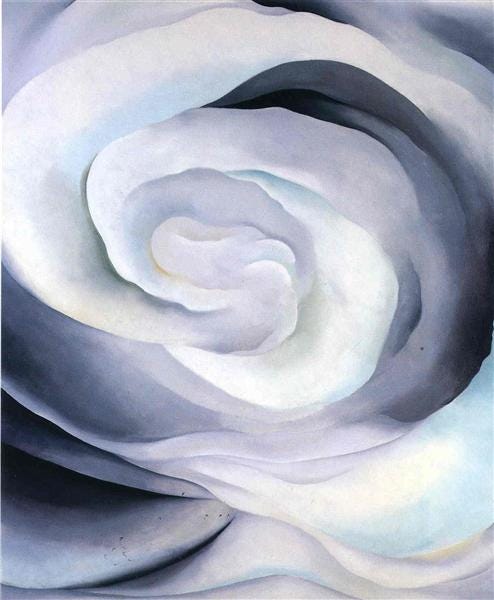Is a rose a rose?
In this poem, Sappho, one of the best-loved poets of all time, boldly evokes the romance of the cherished flower
Sappho, ‘The Rose’
If it pleased the whim of Zeus in an idle
Hour to choose a king for the flowers, he surely
Would have crowned the rose for its regal beauty,
Deeming it peerless;
By its grace is valley and hill embellished,
Earth is made a shrine for the lover's ardor;
Dear it is to flowers as the charm of lovely
Eyes are to mortals;
Joy and pride of plants, and the garden's glory,
Beauty's blush it brings to the cheek of meadows;
Draining fire and dew from the dawn for rarest
Color and odor;
Softly breathed, its scent is a plea for passion,
When it blooms to welcome the kiss of Kypris;
Sheathed in fragrant leaves its tremulous petals
Laugh in the zephyr.
*The poem has been rendered into modern English by John Myers O’Hara

What we love about this passage…
She seems so sure! Sappho’s poetry confidently describes the romantic power of the rose. In doing so, those fleeting aspects of life that usually seem hard to describe—love, beauty, romance, sexuality—come to seem lucid, alive, and almost obvious. In the final lines, Kypris or Aphrodite, the Greek Goddess associated with love, is invoked, unabashedly kissing the flower and causing it to tremble.
About the Author
Sappho (c.620-c.550 BCE) is known for her lyric love poetry, which would have been sung to music and performed. See here for more details of her life and work.
To read alongside…
Many centuries later, Gertrude Stein would write in her poem ‘Sacred Emily’ (1913) that ‘Rose is a rose is a rose is a rose’—a line whose repetition asks us to go beyond our romantic associations and see love, in this case for a woman named Rose, in its stark reality. At first glance, this may seem to be the opposite of what Sappho is saying in this poem, devoted as she is to the poetic associations of the flower. On the other hand, we can also see that both poets are playing with certain questions about love — is it better when it’s secret, even forbidden? Or when it’s flagrant, out in the open?
You might also enjoy early 20th-century American poet Sara Teasdale’s ‘Sappho’, written in the style of a dramatic monologue. The poem’s final lines convey Sappho’s thoughts:
Ah, Love that tuned my lips to lyres of thine, I taught the world thy music, now alone I sing for one who falls asleep to hear.
Curators’ Corner
Thank you to one of our readers, Heidi Fiske, for suggesting that we feature Sappho’s poetry.
Suggest a LitHit!
Tell us your own favourites from literature you've read, and we can feature you as a Guest Curator if you like. Just email us with the following information:
Your full name
The title of the book you're suggesting
The location of the excerpt within the book (e.g., "in the middle of chapter 5"), or the excerpt itself copied into the email or attached to it (in Word)
Why you love it, in just a few sentences
About LitHits
LitHits helps you make time for reading by bringing you unabridged excerpts from brilliant literature that you can read on the go, anytime or any place. Our curators carefully select and frame each excerpt so that you can dive right in. We are more than a book recommendation site: we connect you with a powerful, enduring piece of literature, served directly to your mobile phone, tablet or computer.
You might also enjoy...
Feedback
We'd love to hear your thoughts on our newsletter:
kshepherdb@yahoo.co.uk
Graphic design by Sara Azmy
All curation content © 2024 LitHits. All rights reserved.




